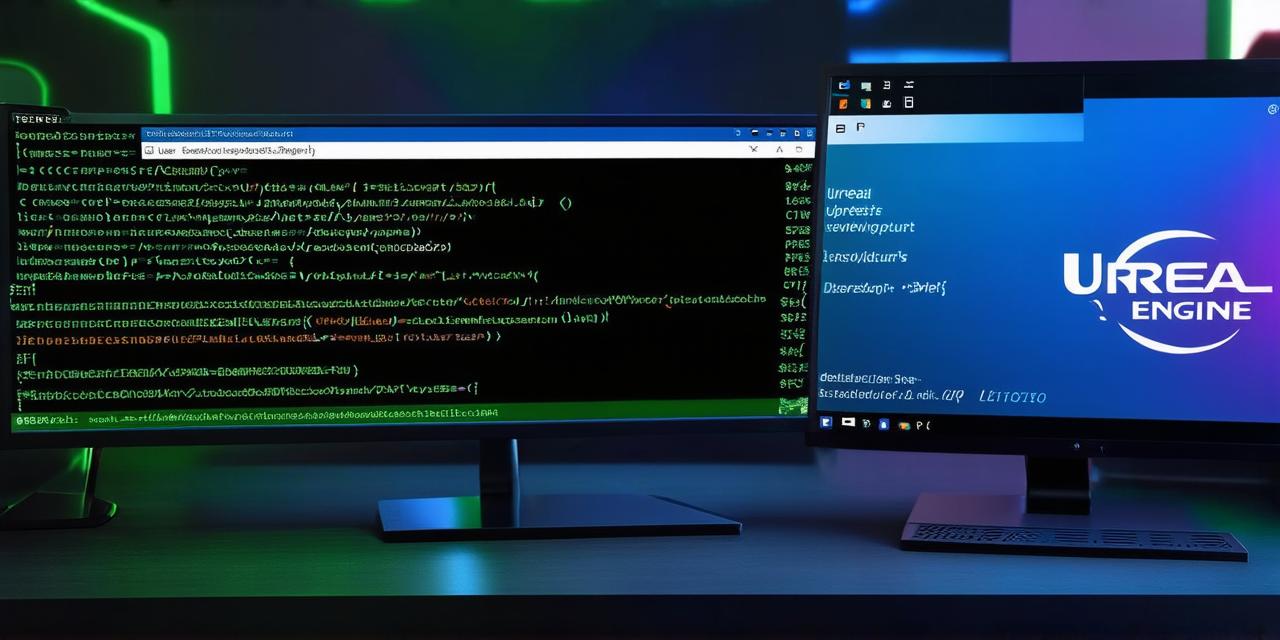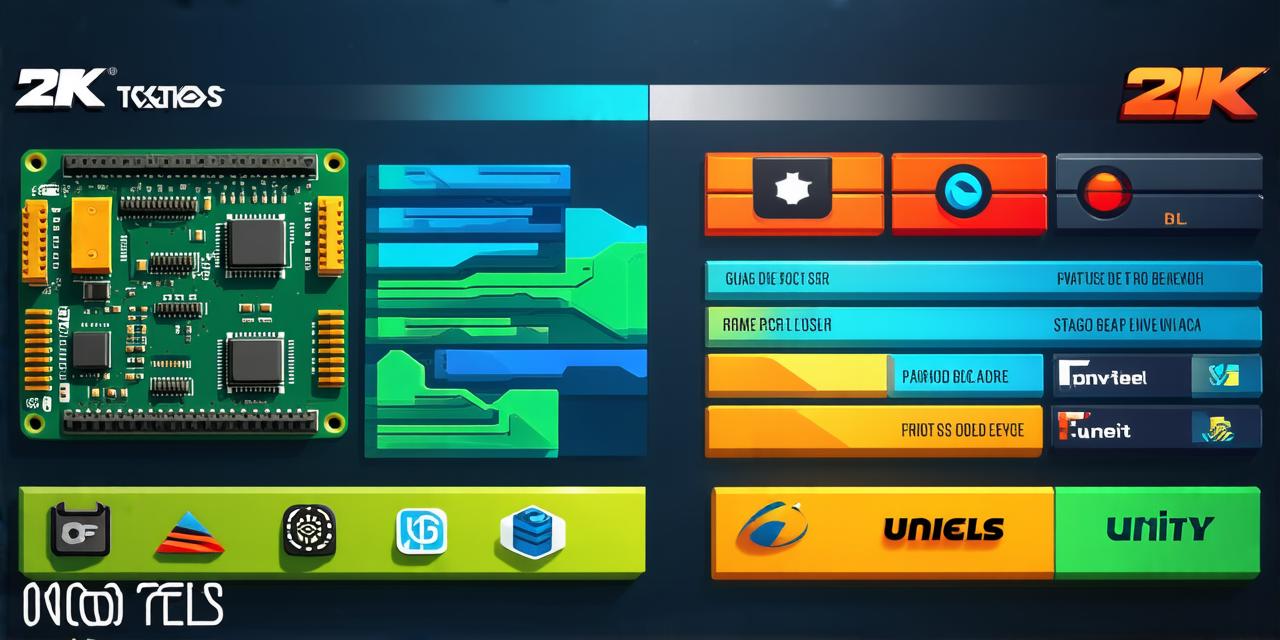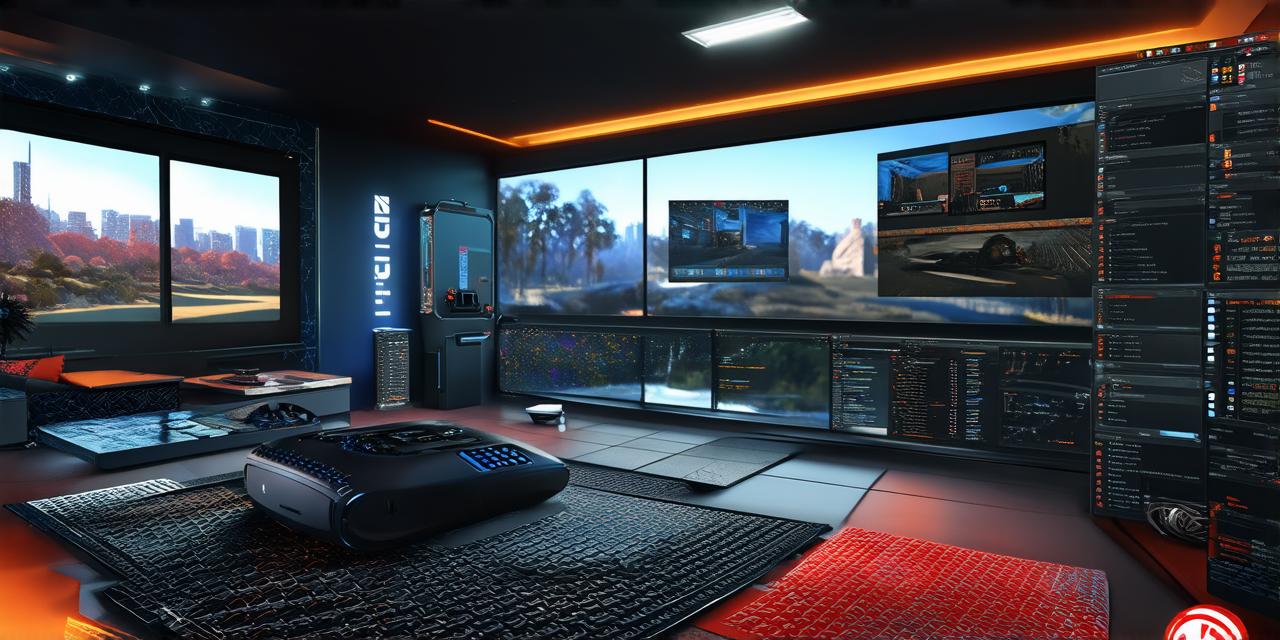Is Unity Easier to Use Compared to Unreal? A Comprehensive Comparison of Two Popular 3D Game Engines
1. User Interface and Workflow:
One of the most critical aspects to consider when comparing Unity and Unreal is their user interface (UI) and workflow. Both engines are designed with an intuitive and easy-to-use UI, but there are some subtle differences that can make a big impact on a developer’s overall experience. For instance, Unreal has a more complex UI, which may take some time to get used to, while Unity has a more straightforward and streamlined interface that is easier to navigate. Additionally, Unity has a more straightforward workflow, which makes it easier for beginners to understand the basics of game development.
2. Advanced Features:
Both engines are packed with advanced features that allow developers to create complex and visually stunning games. However, Unreal offers a more extensive range of features, including support for HDR graphics, VR development, and real-time ray tracing, which can make it a better choice for developers looking to push the boundaries of what is possible in game development. On the other hand, Unity has made significant improvements in recent years and now offers many of the same advanced features as Unreal, making it a more viable option for experienced developers.
3. Community Support:
Another important factor to consider when comparing Unity and Unreal is their community support. Both engines have large and active communities of developers who contribute to the development of new tools, plugins, and assets that can enhance the user experience. However, Unreal has a slightly larger and more established community compared to Unity, which may be an advantage for developers looking for a wider range of resources and support.
4. Performance:
When it comes to performance, both engines are capable of delivering high-quality graphics and smooth gameplay. However, Unreal is generally considered to be faster than Unity due to its focus on optimized rendering and real-time performance. Additionally, Unreal offers a more extensive range of optimization tools, which can make it easier for developers to fine-tune their games for optimal performance.
5. Learning Curve:
Finally, one of the most critical factors to consider when comparing Unity and Unreal is the learning curve. Both engines require some level of skill and experience to master, but Unreal has a steeper learning curve compared to Unity due to its more complex features and UI. However, with the right resources and guidance, both engines can be learned by beginners and experienced developers alike.
In conclusion:
In conclusion, the decision between Unity and Unreal ultimately comes down to personal preference and the specific needs of your project. Both engines offer advanced features, powerful performance, and an extensive range of community support, making them viable options for developers looking to create complex and visually stunning games. While Unity may be easier to use due to its more straightforward interface and workflow, Unreal offers a more extensive range of advanced features and optimization tools, which can make it a better choice for developers looking to push the boundaries of what is possible in game development. Ultimately, the best way to determine which engine is right for you is to try them both out and see which one feels most comfortable and intuitive for your needs.





